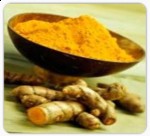 Breast Cancer has been spreading faster than wildfire for over three decades. A new discovery recently published explains how the Chinese herb Curcumae Radix, can possibly help prevent breast cancer and can be used for breast cancer therapy.
Breast Cancer has been spreading faster than wildfire for over three decades. A new discovery recently published explains how the Chinese herb Curcumae Radix, can possibly help prevent breast cancer and can be used for breast cancer therapy.
Top doctors are studying breast cancer treatments around the clock and yet there is little in the way of PREVENTIVE strategies. The reasons are complicated but it may be partly due to the fact the breast cancer is not one disease. There are several different types of cancer cells which all cause breast cancer, some are more aggressive while others spread slower. To understand which cancer cells a patient has, doctors must analyze the cells individually. Once this is determined, treatment options can be customized, including herbal treatments for breast cancer.
The recent study from the University of California, San Diego, published in the British Journal, Nature, has discovered a molecule called RANKL, found in aggressive breast cancer cells that predicts more deadly, lethal and life threatening disease. The findings from these recent studies suggests that herbs with the correct chemicals can block RANKL and may be effective in preventing both the early stages of breast cancer and the advanced progression of the disease. Research has also shown the active ingredient in the Chinese herb, Curcumae root (small quantities found in the spice Turmeric) has properties that also reduce the expression of these deadly molecules within cancer cells and can potentially slow the spread of breast cancer.
This new research demonstrates that when a protein molecule called RANKL (Receptor Activated Nuclear Factor Kappa Ligand) is present in breast cancer cells in high amounts, these tumor cells are more activated, more aggressive, more likely to spread and more likely to kill. RANKL is produced by regulatory T-Cellsthat modulate our immune response. High levels of these T-cells means high levels of RANKL, high levels of inflammation and aggressive high risk disease.
Dr. Bharat Aggarwal, Ph.D. Professor, Department of Experimental Therapeutics, Division of Cancer Medicine, The University of Texas M.D. Anderson Cancer Center, Houston, TX is one of many respected researchers and experts who has published many studies on the effects of curcumin on cancer cells. According to Dr. Aggarwal
“Curcumin has a very special nature which will work both for cancer prevention as well as for cancer therapy.”
Turmeric (Curcuma longa or Curcumae radix) is one of the most potent cancer fighting foods. Curcumin, the active ingredient in this common medicinal and culinary herb has been widely studied. It is recognized as a potent cell protectant, anti-oxidant and anti-inflammatory agent. Turmeric has been used for centuries to support cancer patients in Traditional Chinese Herbal Medicine and Indian Ayurvedic Medicine. Now modern science demonstrates why it works. Curcumin has been shown to influence many cellular factors, including lowering RANKL.
Blocking tumor promoting RANKL can block the spread of breast cancer cells to other parts of the body. This new information gives women hope that using the natural substance, Curcumin can be used as a preventative, and can lower inflammation, lower RANKL, thereby lowering breast cancer risk.
As with any potent botanical medicine or Chinese herbal medicine, the use of curcumin should be used under the supervision of a knowledgeable licensed Acupuncturist and herbalist or other licensed professional. Countries such as India use turmeric frequently in their daily diet and have lower rates of many cancers including prostate cancer, breast cancer and colon cancer. Turmeric can be safely added to your food as a cooking spice to add anti-inflammatory, anti-oxidant and anti-cancer properties to your daily diet.
Disclaimer: Please consult a physician before making any decisions regarding breast cancer treatment.
See the study at the link below.
http://www.ncbi.nlm.nih.gov/pubmed/16219905 Curcumin (diferuloylmethane) down-regulates expression of cell proliferation and antiapoptotic and metastatic gene products through suppression of IkappaBalpha kinase and Akt activation.
Also check out this link at the Linus Pauling Institute research on curcumin for breast cancer. http://lpi.oregonstate.edu/infocenter/phytochemicals/curcumin/
More helpful links on Curcumin: ” Curcumin for Prevention of Colorectal Neoplasia” American Botanical Council http://cms.herbalgram.org/herbclip/442/091152-442.html
Contact Us if you need help finding a Licensed Acupuncturist or herbalist in your neighborhood.

